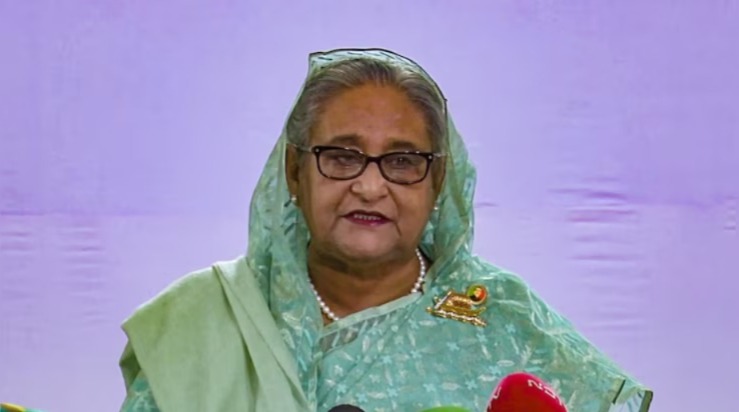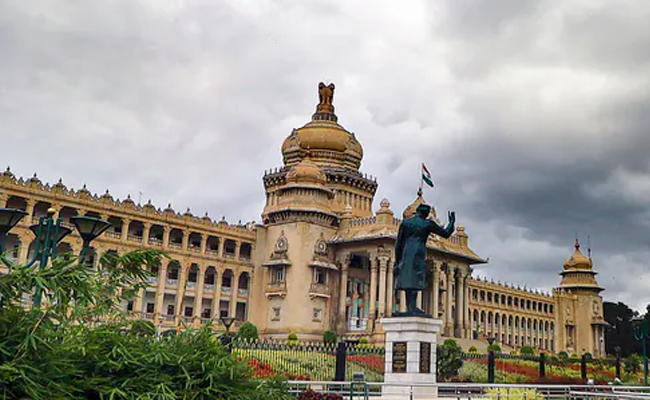New Delhi: Sheikh Hasina, the former Prime Minister of Bangladesh, resigned amid violent protests and fled Dhaka two days ago. She landed near Delhi, sparking speculation about her next move. Initial reports suggested she might seek asylum in the UK, but this appears unlikely as the UK Home Office stated that British immigration rules do not allow individuals to travel to the country to seek asylum or temporary refuge.
In an interview with NDTV, Sheikh Hasina's son, Sajeeb Wazed Joy, clarified that his mother has not requested asylum anywhere. He mentioned that she had planned to retire after her current term and is now done with politics in Bangladesh. Sheikh Hasina's daughter, Saima Wazed, who resides in Delhi, expressed her heartbreak over the situation but indicated she has not met her mother since the escape.
Despite Sheikh Hasina's sister being a UK citizen and her niece, Tulip Siddiq, holding a political position in the Labour Party, the UK has maintained that individuals seeking asylum must do so in the first safe country they reach. Thus, the UK appears hesitant to offer her refuge.
Although Sheikh Hasina's son lives in the US, the strained relations between Washington and Dhaka during her tenure reduce the likelihood of her moving there. There have been unconfirmed reports of her US visa being canceled following her resignation.
Sheikh Hasina has been in India since Monday. External Affairs Minister S. Jaishankar stated that she sought approval to come to India on short notice. India is giving her time to decide on her next move, considering her historical relationship with the country, but faces a diplomatic dilemma in supporting her openly.
Sheikh Hasina's future remains uncertain as she considers her options amid geopolitical complexities. The Indian government is providing her with the necessary time and support to recover and plan her next steps.
Let the Truth be known. If you read VB and like VB, please be a VB Supporter and Help us deliver the Truth to one and all.
Bengaluru: Government employees in Karnataka have urged the state government to scrap the New Pension Scheme (NPS) and bring back the Old Pension Scheme (OPS), The New Indian Express reported.
The demand was made by the Karnataka State Government Employees’ Association, whose leaders met senior IAS officer Uma Mahadevan on Monday and submitted a memorandum. The association asked the NPS Review Committee, headed by senior IAS officer Anjum Parvez, to recommend the reintroduction of OPS in the state.
Association president C.S. Shadakshari reportedly said the review committee has already visited Rajasthan, Himachal Pradesh, Andhra Pradesh and Telangana where NPS was revoked and OPS re-implemented. The committee is yet to submit its report, but has told the government it will do so soon.
ALSO READ: Udupi man loses Rs 55,000 in Facebook graphics card scam
Shadakshari allegedly said NPS has been in force in Karnataka since 2006. He pointed out that West Bengal never adopted the scheme, while Andhra Pradesh and Telangana replaced NPS with a contributory pension model.
States including Rajasthan, Chhattisgarh, Himachal Pradesh, Punjab and Jharkhand have already scrapped NPS through cabinet decisions or budget announcements.
“Under NPS, 10% of the employees’ basic salary and DA, and 14% contribution from the state is credited to the employees’ fund. It constitutes 24% of the total which is non-withdrawable. This is invested in the share market and the final amount depends on the ups and downs of the market,” TNIE quoted Shadakshar as saying.
As per the report, he said that by limiting its contribution to 14%, the government could save up to ₹1.87 lakh crore annually if all vacancies are filled, strengthening the case for bringing back the old pension system.





